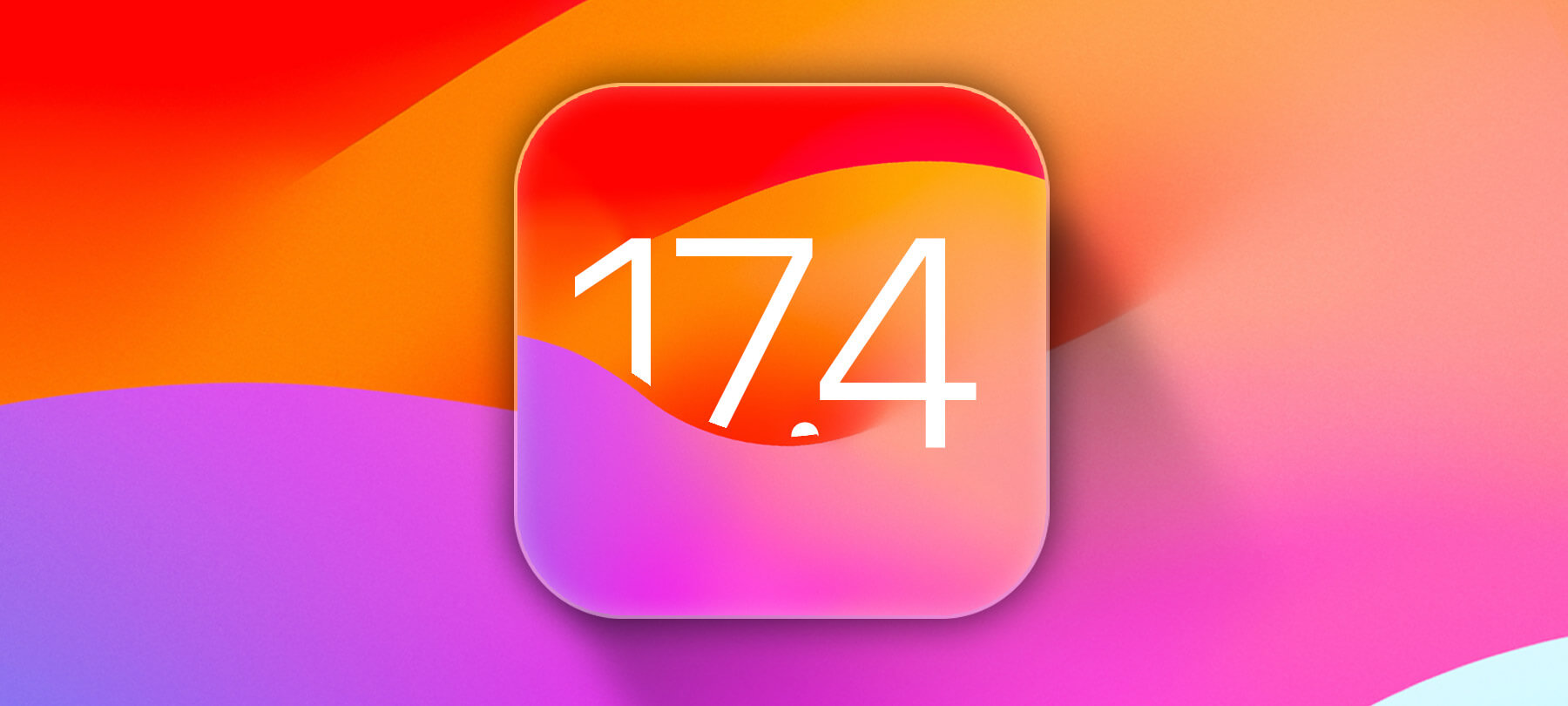
iOS 17.4 Has Arrived: Here’s What To Expect
One of the biggest updates to iOS is here – the latest version of iOS 17.4 has finally arrived on our devices! While this update has been in the works since the end of January, it is now available for installation and download as of March 5th. This update is especially important for those who live in the European Union, as these changes now comply with the Digital Markets Act in the EU.
Apple’s new iOS 17.4 brings with it a plethora of updates, changes, and security patches that will surely enhance the overall user experience. In this article, we’ll go over some of the most notable additions and improvements that are included in iOS 17.4.
What To Expect If You’re An EU Apple User
With the release of iOS 17.4 in March 2024, Apple promises to revolutionize the user experience for those in the European Union. Keeping the Digital Markets Act (DMA) into consideration, iOS 17.4 unveils a plethora of changes and exciting elements for users and developers alike. Here’s what to anticipate, according to Apple’s official press release:
Upgrades to iOS
- Alternative distribution options for iOS apps across diverse platforms.
- Frameworks and APIs are designed to build alternative app marketplaces, introducing an easier way for developers to manage and update apps.
- Comprehensive frameworks and APIs for non-WebKit browser engines to boost browser app creation.
- An interoperability request form for developers to ask for enhanced interoperability with iPhone and iOS hardware and software features.
- The introduction of notarization for iOS apps, a baseline review mechanism applied to all apps to ensure user safety and platform integrity.
- The debut of installation sheets, offering brief descriptions of apps, including developer data and screenshots.
- Regulations and checks for marketplace developers to guarantee compliance and protect end-users and developers.
- Additional malware protections to stop malicious apps from functioning after installation.
Modifications in Safari
The ability to set third-party web browsers as default is now a reality with iOS 17.4. A fresh choice screen will suggest EU users select their preferred default browser upon the first Safari launch.
Revamp in the App Store
- Enhanced options to process payments within apps using different Payment Service Providers (PSPs).
- Innovative solutions for processing payments via external links, directing users to developers’ websites.
- Business planning tools for developers to estimate fees and comprehend metrics linked with Apple’s novel business terms for EU apps.
- App Store product page labels alert users about the usage of alternative payment processing methods.
- In-app disclosure sheets giving insights to users about their non-Apple transaction activities.
- New App Review methods to verify the correct communication of transaction details involving alternative payment processors.
- Enriched data portability on Apple’s Data & Privacy site, facilitating EU users to extract and export their App Store usage data.
New Business Arrangements for Apps in the EU
In line with the DMA’s requirements, Apple introduces favorable business terms. Key points include:
- Reduced commission rates on transactions – either 10% or 17% based on the developer and subscription status.
- A 3% payment processing fee for transactions via App Store’s processing, or an alternative with no extra charges to Apple.
- A Core Technology Fee of €0.50 for each first annual install per year for apps surpassing the 1 million threshold.
These modifications are devised to provide developers with more options and flexibility while safeguarding user privacy, security, and experience quality.
Security Implications For Alternative Distribution On iOS In The EU
Alternative distribution on iOS in the EU brings a host of security concerns, and it’s crucial to consider these implications.
- Alternative distribution may expose users to software from unverified developers who do not adhere to Apple’s Developer Program requirements. This could potentially make way for applications with malicious intent or malware, compromising system integrity and user privacy.
- It opens up the possibility of pirated software circulation. Since these apps bypass Apple’s stringent review process, they might not only violate intellectual property rights but also lack the necessary security features, posing risks to users’ data and devices.
- The lack of content moderation standards may expose users to harmful, illicit, or objectionable content. This could lead to a less secure and wholesome user experience, which is a stark contrast to what Apple’s ecosystem traditionally offers.
- There is an increased risk of scams, fraud, and abuse as Apple’s ability to support and refund customers regarding these issues becomes limited.
Despite safeguards being implemented, many of these risks persist. Therefore, while alternative distribution may offer more flexibility and freedom, it also introduces significant security challenges that need to be carefully managed. It is essential for users and developers in the EU to weigh these risks against the potential benefits of alternative distribution on iOS.
Exploring the Security Features of iOS 17.4 Update
Among the various improvements, the focus on security features stands out as a crucial aspect of this update. Let’s delve into the significant security upgrades introduced in iOS 17.4 and explore how they enhance the overall protection and privacy of iPhone users.
Stolen Device Protection Enhancements
One of the key security enhancements in iOS 17.4 is the Stolen Device Protection feature. With this update, users now have the option to enforce a delay when modifying security settings, even when within familiar locations. This means that unauthorized individuals are further impeded from making immediate changes to device security, providing additional time for the rightful owner to respond and take necessary action in case of a stolen or lost device.
Post-Quantum Cryptography in iMessage
iOS 17.4 introduces a groundbreaking security upgrade in iMessage through the implementation of PQ3, a revolutionary post-quantum cryptographic protocol. This advancement represents the most significant cryptographic security upgrade in iMessage history, significantly enhancing the end-to-end secure messaging capabilities. The utilization of PQ3 ensures that iMessage communication remains robustly encrypted, even in the face of potential future advancements in quantum computing, thus fortifying the privacy and security of user conversations.
Kernel and RTKit Security Updates
In response to the ever-evolving threat landscape, iOS 17.4 encompasses crucial security updates, addressing vulnerabilities affecting the Kernel and RTKit components.
Apple has proactively acknowledged potential exploits related to these areas, demonstrating a proactive approach to mitigating security risks. By swiftly addressing these vulnerabilities, the update reinforces the overall security posture of the iOS platform, safeguarding users against potential malicious activities targeting these system components.
What Is The Kernel?
The kernel is the foundational layer of a computer’s operating system (OS). Acting as the bridge between applications and hardware-level data processing, it plays a crucial role in managing system resources and facilitating inter-process communication. The kernel provides a stable interface to access system devices, thus ensuring that applications can function effectively without directly tampering with system resources. It’s akin to the computer’s brain, controlling everything within the system. Kernel updates are vital for maintaining system security, stability, and enabling new features. For instance, the Kernel Framework in Apple’s iOS provides APIs and support for device drivers and other kernel extensions, addressing vulnerabilities like memory corruption to prevent unexpected system termination or unauthorized kernel memory writing.
What Is RTKit?
RealtimeKit, or RTKit, is a D-Bus system service used in Linux-based operating systems. Its primary function is to change the scheduling policy of user processes or threads to SCHED_RR, which stands for Round Robin scheduling mode. This allows these processes to run in real-time, meaning they get priority access to CPU time over other tasks. RTKit is crucial in systems where real-time processing is essential, such as in audio or video streaming applications. It ensures that these applications receive the necessary resources promptly, thereby preventing lags and interruptions, contributing to a smoother user experience.
Accessibility and Safari Private Browsing Security Patches
Furthermore, the release of iOS 17.4 includes security updates aimed at bolstering the protection of Accessibility and Safari Private Browsing functionalities. By patching vulnerabilities within these critical areas, Apple demonstrates its commitment to upholding the integrity and security of user interactions and web browsing experiences. These updates serve as proactive measures to mitigate potential security threats and vulnerabilities, ensuring a safer and more secure browsing and accessibility experience for iPhone users.
Additional Security Enhancements
As part of the iOS 17.4 update, Apple has integrated several other security enhancements, including improvements to the Battery settings UI and the introduction of Apple Cash virtual card numbers. These additions provide users with greater control over their financial transactions and further reinforce the security framework governing monetary interactions within the Apple ecosystem.
How Do I Install iOS 17.4?
While your phone will typically prompt you to install iOS 17.4, it may not happen right away. If you’d like to update to the newest iOS now, follow these steps to do so:
- Make sure your phone is connected to wifi and a power source
- Open up “Settings“
- Tap on General – Software Update
- From there, you’ll see the update appear. Tap on the “Download and Install” button.
- Enter your passcode. From there, your iPhone will restart once the new iOS is installed.
In conclusion, the iOS 17.4 update brings a plethora of new features and enhancements, ranging from improved payment options for developers to significant security upgrades for iPhone users. With the constant evolution of technology and increasing online threats, Apple’s commitment to regularly updating and improving its operating system is vital in maintaining the privacy and security of its users.


